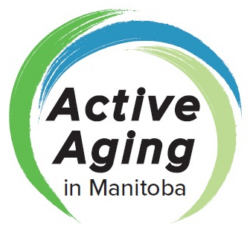For older adults physical activity and exercise are great ways to maintain the quality of your life, feel energetic and live a happy and rewarding life. It doesn’t matter what your age is or your current level of activity, it is never too late to experience the joy and health benefits of an active lifestyle.
Many older adults may feel it is too late to change their lifestyle or feel uneasy about trying new exercises or activities. Our goal is to help you understand physical activity and exercise, the benefits, and most importantly help you take the small easy steps to fit activity into your daily lives!
What is Physical Activity or Exercise?
Physical activity is defined as any bodily movement that requires energy expenditure. It is often unplanned and unstructured such as taking the stairs instead of the elevator, gardening, house work, walking the dog or playing with your grandchildren.
Exercise is a form of physical activity. Exercise is defined as a bodily activity that develops and maintains physical fitness and overall health. It is often planned and structured, and often practiced to strengthen muscles and the cardiovascular system.
Examples include: cycling, strength training, walking, yoga, or swimming.
Both physical activity and exercise are important to a healthy lifestyle! Everyone can benefit from daily physical activity and/or exercise!
Many of us are likely to agree, “Yes, I should be more active. But I don’t have the time, money, or transportation to get to a fitness class, and so there’s just no way to fit physical activity into my life.”
Yet, physical activity as defined above can be simple things that we’re already doing, like gardening or walking to the corner store. For many active older people, a typical week always includes physical activity or exercise. Activities could be walking to the park with a grandchild, bowling, taking an aquasize class at the community centre, or vacuuming the apartment.
Start slowly, build on what you already do (for example, if you walk for 10 minutes, try 15 minutes, ask a friend to join you. Add some stretches into your day before you tackle the garden beds). There are many things that you can do; it’s an ongoing process. Some days will be easier than other days. The Canadian Society of Exercise Physiology (CSEP) recommends 150 minutes a week of activity. You’ll find some great resources and suggestions to help you continue with your activity or to help get you started. Remember, it doesn’t have to be complex or daunting. Every bit of movement counts.
